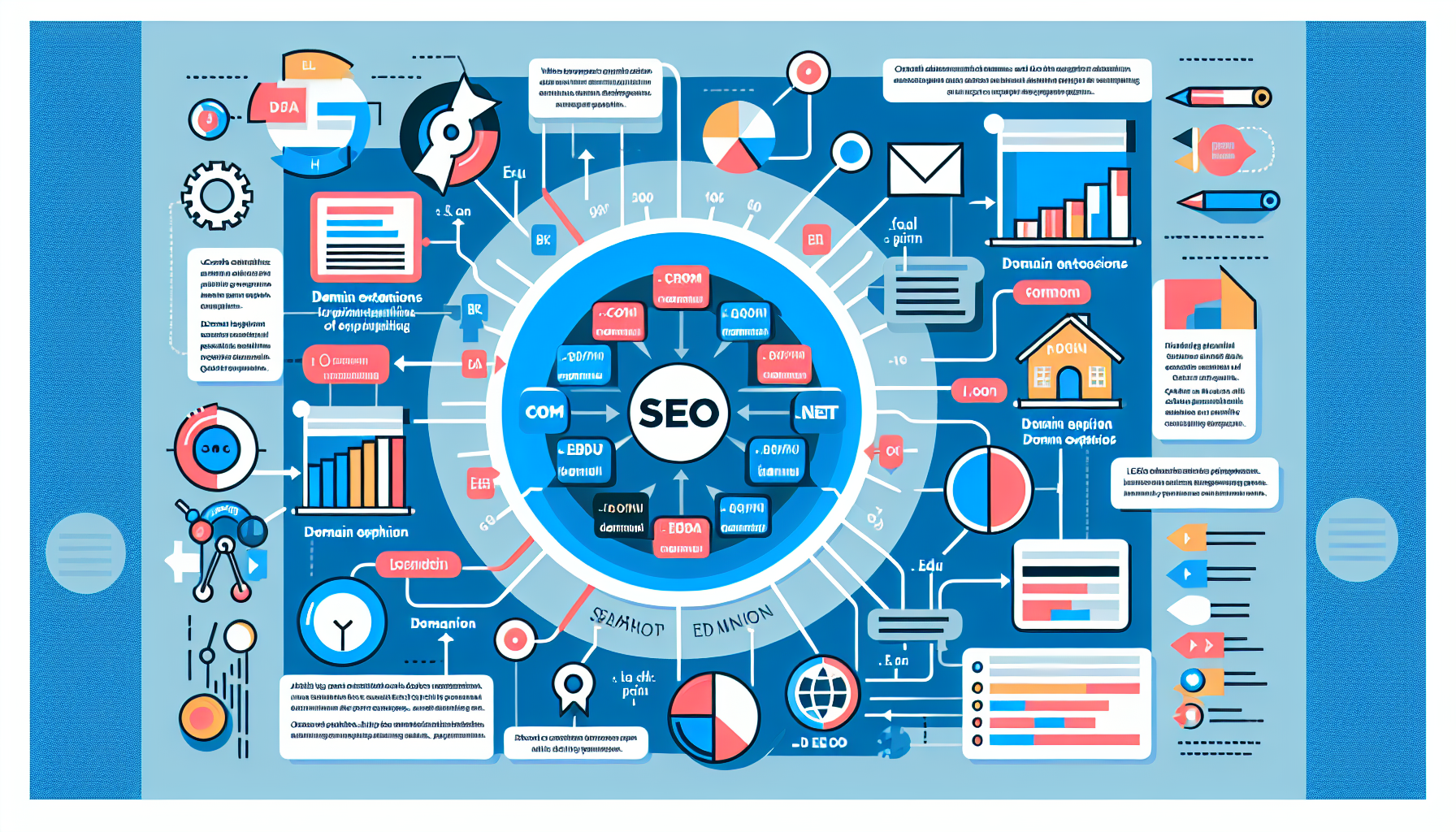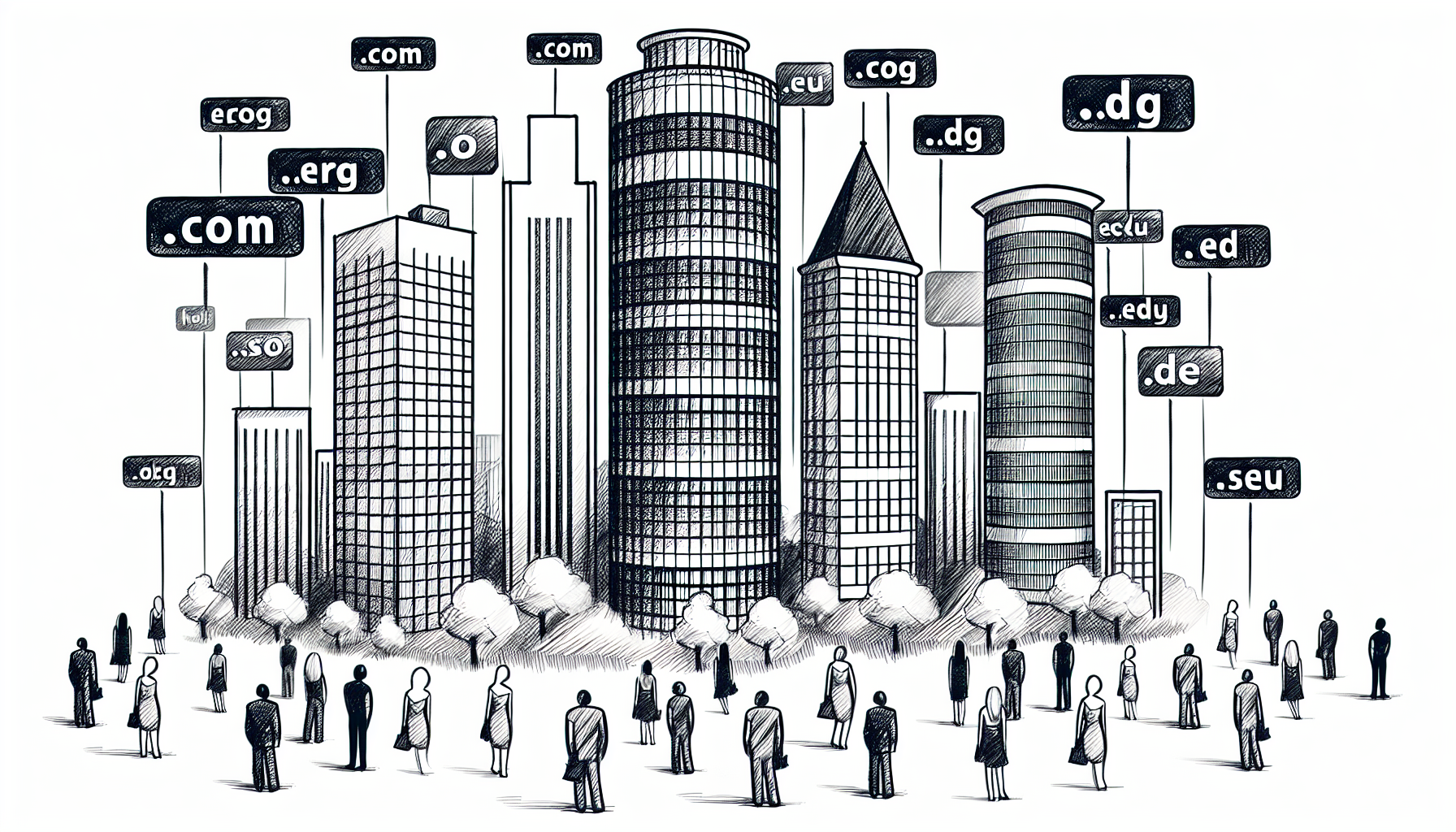Domain extensions, also known as top-level domains (TLDs), are a crucial part of a website’s URL. They follow the last dot in a domain name, such as .com, .org, .net, and many others. These extensions serve to categorize websites based on their purpose, type of organization, or geographical location. Originally, the most common domain extensions were .com for commercial businesses, .org for non-profit organizations, .net for network-related enterprises, and .edu for educational institutions. Over time, the diversity of domain extensions has expanded with the introduction of numerous generic TLDs (gTLDs) and country-code TLDs (ccTLDs).
Generic TLDs are not bound by any specific criteria and can be used by anyone. These include traditional options like .com, .org, and .net, as well as newer entries like .info, .biz, and industry-specific extensions like .tech or .health. Country-code TLDs, on the other hand, are reserved for websites associated with particular countries or regions, like .uk for the United Kingdom, .de for Germany, or .jp for Japan. These ccTLDs can signal to search engines and users that the content is relevant to a specific geographical area.
Despite the vast array of available domain extensions, .com remains the most sought-after due to its widespread recognition and trust among users. However, the expanding range of TLDs provides opportunities for more personalized and relevant domain names, which can help establish a unique online identity. Understanding the distinctions and appropriate uses of these domain extensions is fundamental for making informed decisions when registering a domain name.
Impact of domain extensions on SEO

When it comes to SEO, the choice of domain extension can influence several aspects of your website’s performance. While Google has stated that all TLDs are treated equally in its search algorithm, user perception and behavior can still impact your SEO outcomes. A .com extension, for instance, is widely trusted and recognized by users, which can lead to higher click-through rates and perceived credibility. These factors can indirectly enhance your SEO through increased user engagement and lower bounce rates.
Additionally, some domain extensions can be associated with spammy or low-quality sites, which may affect user trust. Even though search engines attempt to treat all TLDs equally, a domain with an extension that has a negative reputation might experience lower user engagement, which can influence its overall search performance. On the flip side, choosing a relevant and industry-specific TLD such as .tech for technology or .health for healthcare can help signal to users and search engines the niche and purpose of your website, potentially contributing positively to your SEO strategy.
Another aspect to consider is backlinking. High-quality backlinks are a significant factor in SEO, and the domain extension can influence the likelihood of other sites linking to you. Websites with familiar and trusted TLDs like .com, .org, or .edu might find it easier to acquire backlinks from authoritative sites compared to lesser-known or newer extensions.
Lastly, it is essential to consider keyword relevance in your domain name. A domain extension that creatively incorporates keywords relevant to your business or content can also aid in search visibility, especially if those keywords are a part of your overall SEO strategy. However, it’s crucial to balance creativity with simplicity, ensuring that the domain remains easy to remember and type.
Choosing the right domain extension

Choosing the appropriate domain extension for your website can significantly impact your online presence and overall strategy. The most recognized extension, .com, is often the go-to choice due to its global familiarity and trust among users. It’s also advantageous for brand recognition and recall, making it a preferred option for commercial enterprises. However, securing a desired .com domain can be challenging due to high demand, leading many businesses to consider other extensions.
New generic TLDs offer a breadth of options that can be beneficial depending on your business type or target audience. For instance, a tech startup might opt for .tech, while an online store might choose .shop. These industry-specific extensions not only make your domain more descriptive and relevant but can also enhance your site’s appeal to your target market. Similarly, non-profit organizations might prefer .org, educational institutions might choose .edu, and network-related enterprises might find .net suitable for their needs. Custom extensions can add value to your brand by making your domain name more expressive and memorable.
Considering geographic relevance, country-code TLDs are an excellent choice if your business is location-specific. Using a ccTLD like .uk, .de, or .jp can signal to both users and search engines that your content is targeted towards a particular country or region. This geotargeting can help improve your local SEO, making it easier for users in those locations to find your site. For businesses that operate internationally, a combination of a generic TLD and multiple ccTLD versions of the site can cater to different markets effectively.
It’s also crucial to weigh the potential security perceptions associated with certain domain extensions. Some TLDs have historically been linked to spammy or less reputable sites. Users might be wary of newer or less common extensions, which could affect your site’s perceived trustworthiness. Therefore, choosing a well-established and respected TLD can alleviate these concerns and foster user confidence.
It’s essential to think about the future scalability of your domain. If you anticipate expanding your business into new regions or sectors, selecting a versatile and adaptable TLD from the start can save you complications later on. Moreover, consider the ease with which your domain can support subdomains or related projects under the same brand umbrella, ensuring consistency and cohesion across your digital presence.
Country-code domains and geotargeting

Country-code top-level domains (ccTLDs) are particularly useful for businesses and websites that aim to target audiences in specific geographic areas. When a website uses a ccTLD, such as .uk for the United Kingdom or .de for Germany, it signals to both search engines and users that the content is localized or tailored to that specific country or region. This localization can be particularly beneficial for improving local SEO, as search engines like Google often prioritize ccTLDs in local search results.
Using a ccTLD can also enhance user experience and trust. Visitors are more likely to engage with a website they perceive to be intended for their geographic region, making it easier to build a loyal customer base. Additionally, local users may feel a sense of familiarity and trust with a ccTLD, knowing that the business or content is relevant to their specific location.
Geotargeting with ccTLDs can also help in cases where language and cultural differences play a significant role. For example, a company operating in multiple countries with distinct languages might benefit from having separate websites with the respective ccTLDs, each tailored to fit the local language and cultural context. This approach not only improves SEO but also enhances user experience by offering content that resonates more deeply with the local audience.
Importantly, search engines recognize ccTLDs as strong indicators of a website’s geographical focus. For instance, a website with a .ca domain is more likely to rank higher in search results when Canadian users search for relevant information. This geotargeting capability can be critical for businesses that rely on local traffic for their operations or services.
While ccTLDs are powerful tools for geotargeting, they are not without their considerations. If a business aims for a global audience, relying solely on a ccTLD might be limiting. In such cases, businesses often adopt a more hybrid approach, using a generic TLD (like .com) for the main site and implementing ccTLDs for localized versions in different countries. This strategy can balance the need for global reach with local relevance.
Another aspect to consider is the potential administrative and logistical overhead of managing multiple ccTLDs, especially for businesses expanding into numerous markets. Each ccTLD will require its own hosting, maintenance, and SEO optimization efforts, which can be resource-intensive. Therefore, businesses need to carefully evaluate their capacity to effectively manage multiple ccTLDs before committing to this strategy.
CcTLDs offer distinct advantages in geotargeting for SEO, particularly for businesses focusing on specific regional markets. These extensions not only help in improving local SEO but also enhance the relevance and trustworthiness of a website in the eyes of local users. However, the decision to use ccTLDs should be weighed against the business’s goals and resources to ensure a sustainable and effective online presence.
Future trends in domain extensions and SEO

As the digital landscape evolves, domain extensions continue to play a significant role in SEO, leading to several emerging trends and technologies influencing their impact. One of the most notable trends is the increased adoption of new generic TLDs (gTLDs). As businesses and individuals seek more descriptive and industry-specific domain names, the popularity of these new extensions is expected to grow. This shift offers an opportunity for brands to establish a unique online presence that precisely matches their identity and purpose.
Voice search is another burgeoning trend that could affect the relevance of domain extensions. With the rise of voice-activated devices like Amazon Alexa and Google Assistant, search queries are becoming more conversational and nuanced. This change might lead to a greater emphasis on easily pronounceable and memorable domain names, including those with new gTLDs that are intuitive and aligned with spoken language.
Furthermore, AI and machine learning advancements are transforming how search engines evaluate and rank websites. These technologies are getting better at understanding context and nuance, potentially reducing the historical bias toward traditional TLDs like .com. As AI-driven algorithms become more sophisticated, the emphasis on high-quality content and user experience will likely increase, possibly diminishing the weight of the domain extension itself.
Blockchain technology and decentralized web concepts are also beginning to influence perceptions around domain extensions. Blockchain domains, such as those ending in .crypto or .eth, offer a revolutionary approach to internet infrastructure, providing greater security and resistance to censorship. As these domains gain traction, search engines may adapt to include them in their ranking algorithms, adding another dimension to the domain extension landscape.
The integration of augmented reality (AR) and virtual reality (VR) into online experiences can also impact domain strategies. As these technologies become more mainstream, businesses might opt for domain extensions that resonate within the AR/VR ecosystem, enhancing their brand’s presence within these immersive environments. This adaptation could lead to the popularity of extensions like .vr or .reality.
Another future trend to watch is the continued emphasis on cybersecurity. As cyber threats become more sophisticated, the security reputation of a domain extension might play a more significant role in SEO. TLDs with stricter registration requirements and better security records could be favored by both search engines and users, making them a more attractive choice for businesses concerned about trust and safety.
Lastly, the global internet expansion and the rise of new markets are bound to influence domain extension strategies. As more regions come online, the demand for region-specific domain names will surge, potentially leading to the creation of new country-code TLDs (ccTLDs) and unique regional gTLDs. This expansion will offer businesses new opportunities to connect with audiences in emerging markets through locally relevant domain names.
Future trends in domain extensions and SEO are shaped by technological advancements, changes in user behavior, and the global evolution of the internet. Staying attuned to these trends can help businesses make informed decisions about their domain strategies, ensuring that their online presence remains competitive and effective in an ever-changing digital world.

